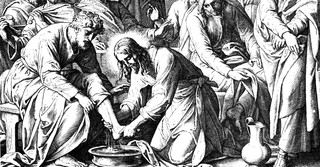
Change Translation
- Recent Translations
- All Translations
Images for Kehillah in Rome 1:14


Share
Videos for Kehillah in Rome 1:14
Kehillah in Rome 1:14 Meaning and Commentary
I am a debtor both to the Greeks, and to the Barbarians,
&c.] The meaning is, that he was obliged by the call he had from God, the injunction that was laid upon him by him, and the gifts with which he was qualified, to preach the Gospel to all sorts of men; who are here distinguished into Greeks and Barbarians: sometimes by Greeks are meant the Gentiles in general, in opposition to the Jews; see ( Romans 1:16 ) ; but here they design only a part of the Gentiles, the inhabitants of Greece, in opposition to all the world besides; for the Greeks used to call all others that were not of themselves Barbarians {e}: or else by Greeks are meant the more cultivated nations of the world, and by Barbarians the ruder and more uncivil parts of it; to which agrees the next division of mankind,
both to the wise and to the unwise.
The Gospel was to be preached "to the wise"; such who thought themselves to be so, and were so with respect to human wisdom and knowledge; though it should be despised by them, as it was, and though few of them were called by it, some were, and still are, though not many; and such wisdom there is in the Gospel, as the wisest of men may learn by it, will be entertaining to them, is far beyond their contempt, and what will serve to exercise their talents and abilities, to search into the knowledge of, and rightly to understand; and it must be preached "to the unwise"; for such God has chosen to confound the wise; these he calls by his grace, and reveals his Gospel to, whilst he hides it from the wise and prudent; and there is that in the Gospel which is plain and easy to the weakest mind, enlightened by the Spirit of God.
F5 Cornel. Nepos, l. 1. c. 2, 7. & 2, 3. & 3. 6. & 4. 1. & passim. Quint. Curtius, l. 3. c. 4, 7. & 6. 5. & passim.
Kehillah in Rome 1:14 In-Context
Study Tools
PLUSUnlock Notes
This feature is for PLUS subscribers only. Join PLUS today to access these tools and more.
JOIN PLUSUnlock Highlights
This feature is for PLUS subscribers only. Join PLUS today to access these tools and more.
JOIN PLUSUnlock Bookmarks
This feature is for PLUS subscribers only. Join PLUS today to access these tools and more.
JOIN PLUSTrack Your Reading
Create a free account to start a reading plan, or join PLUS to unlock our full suite of premium study tools.

